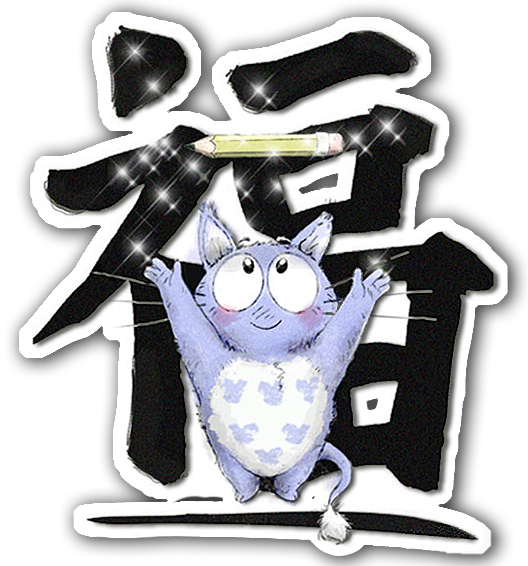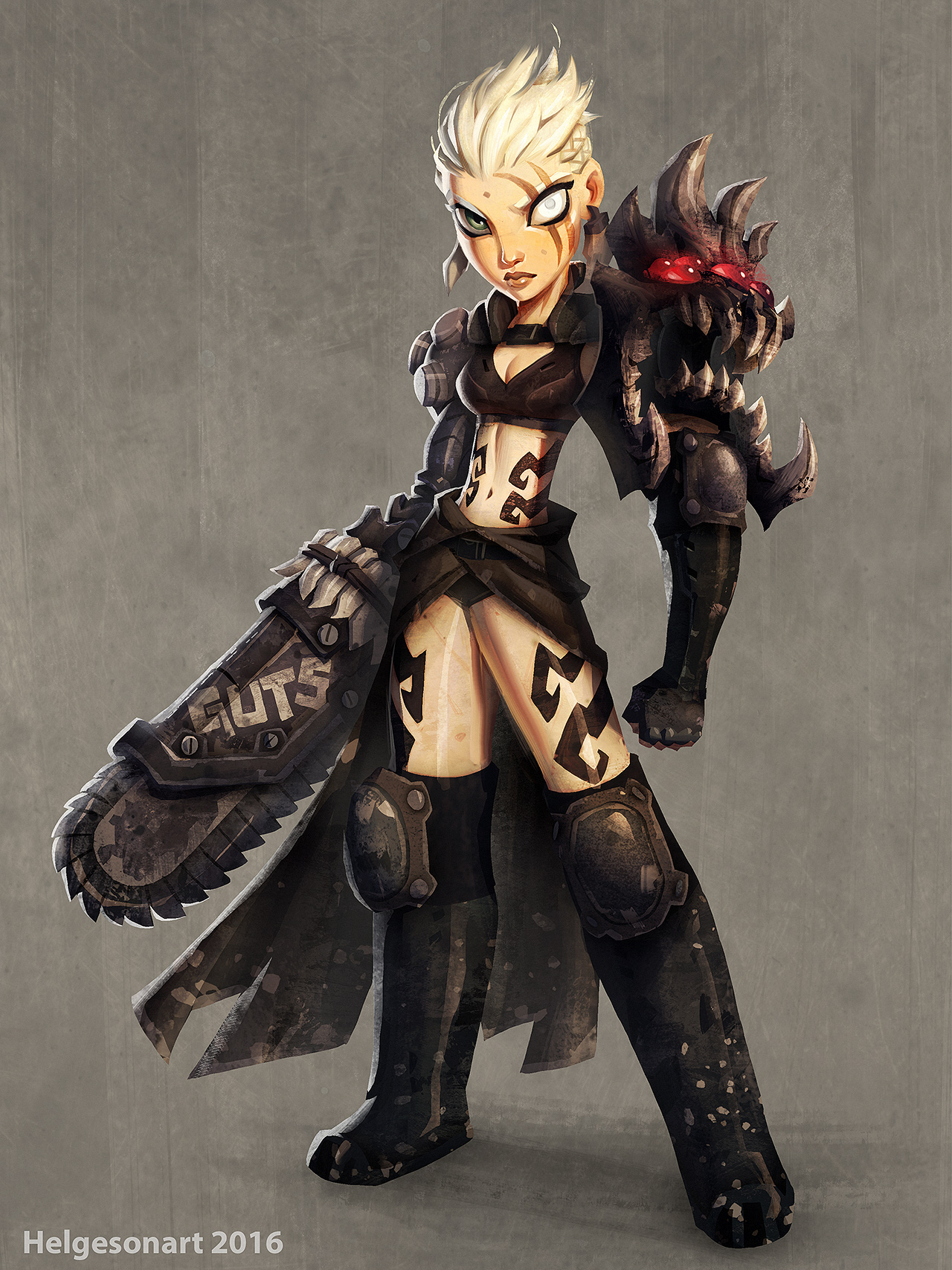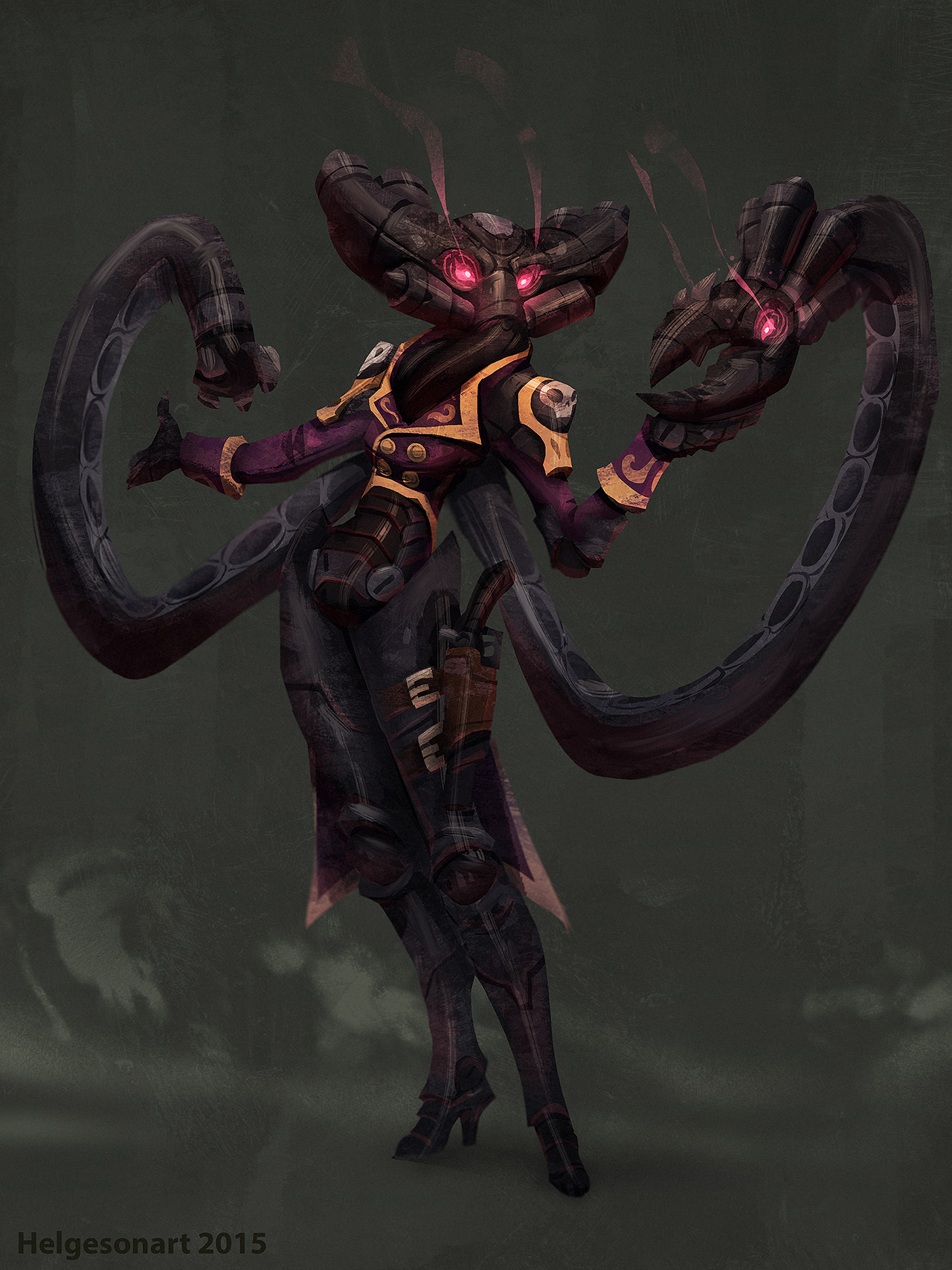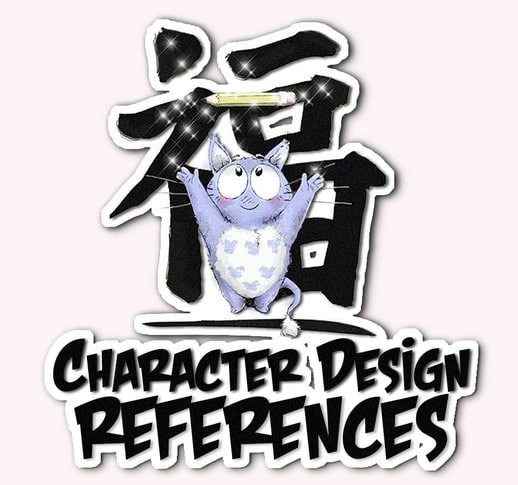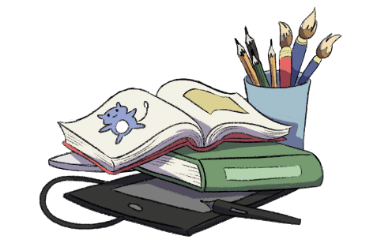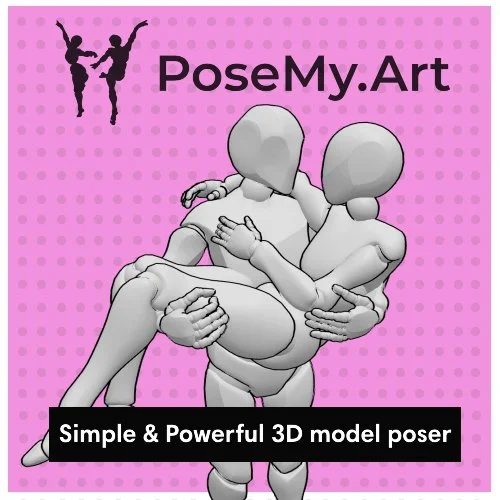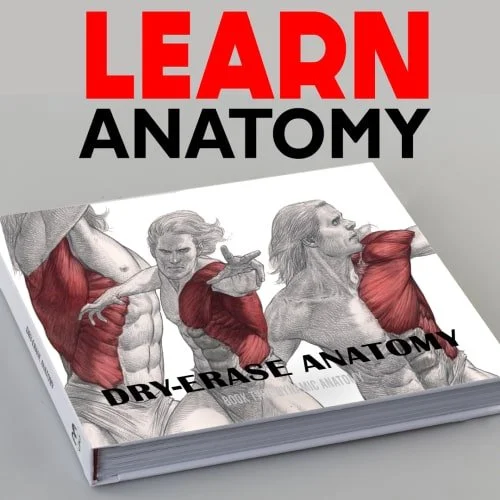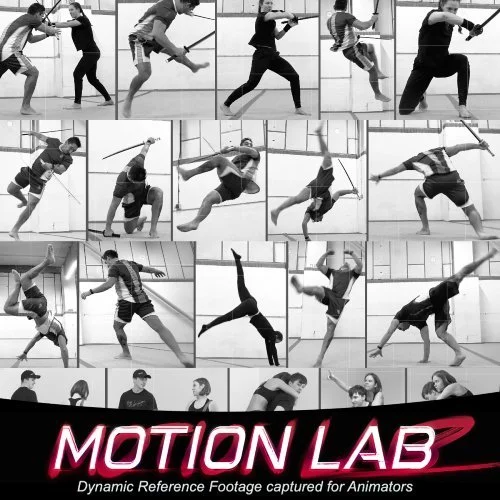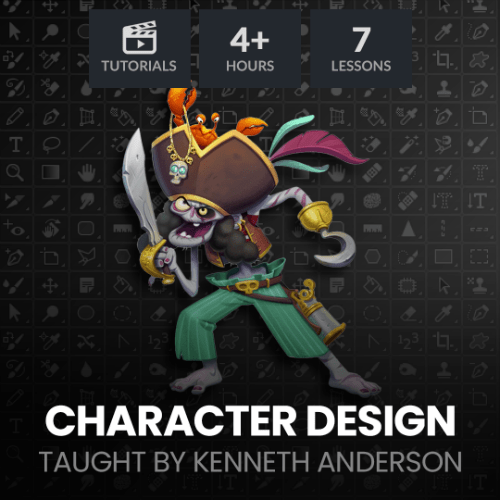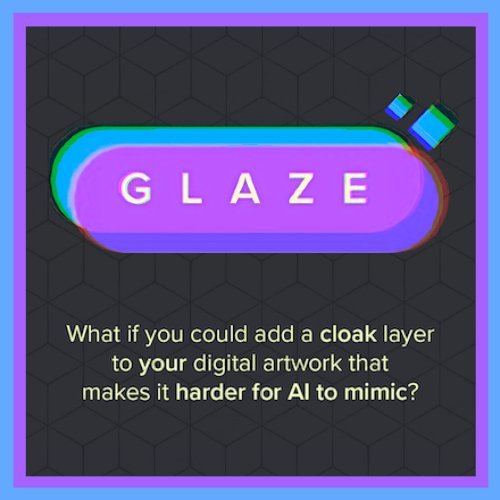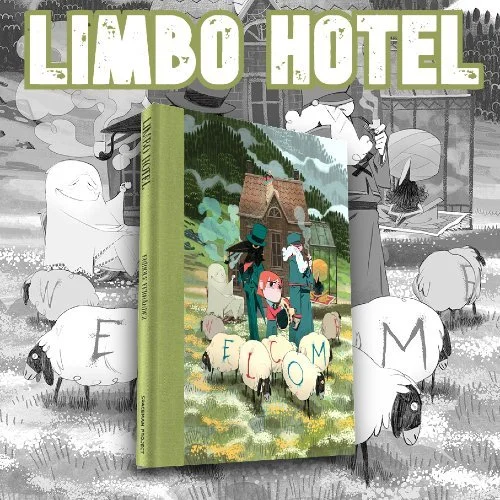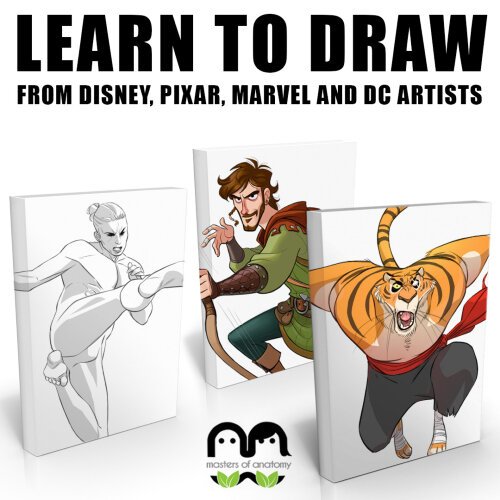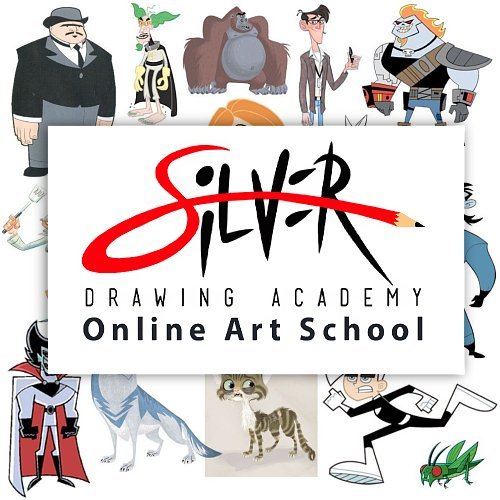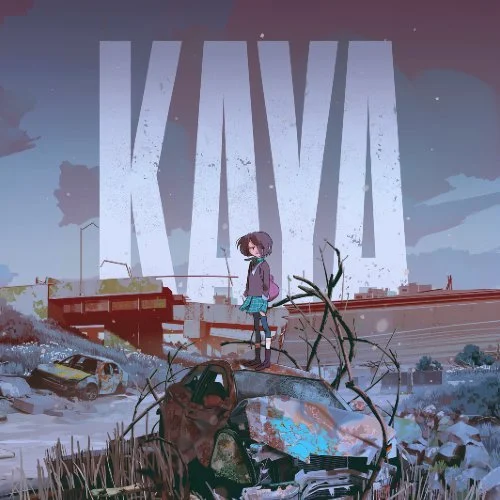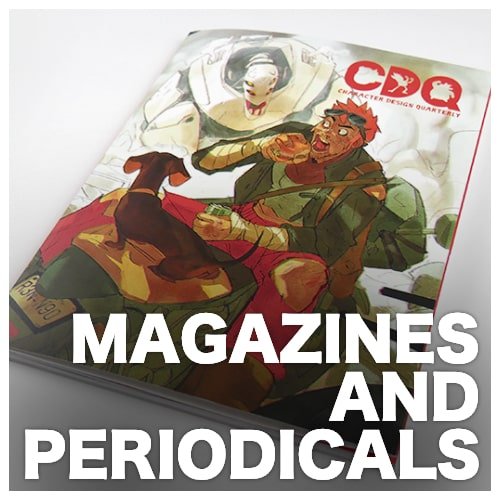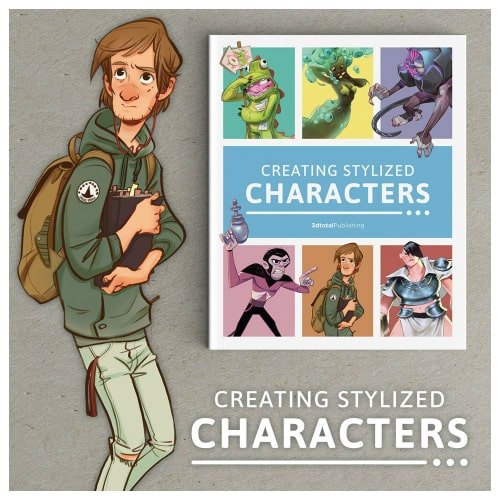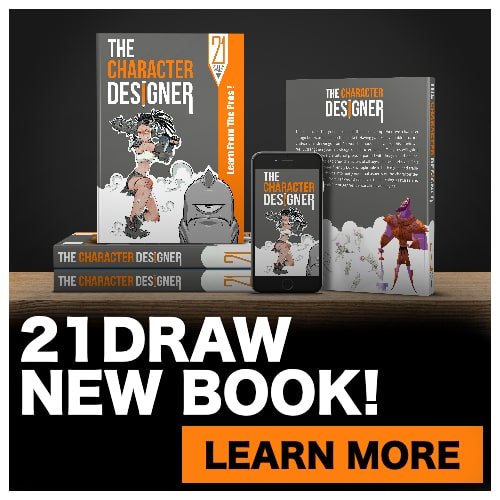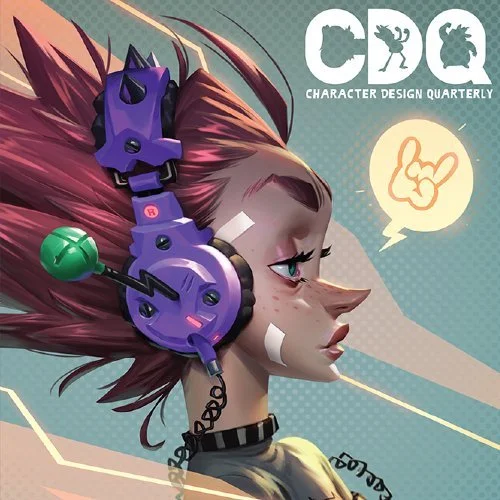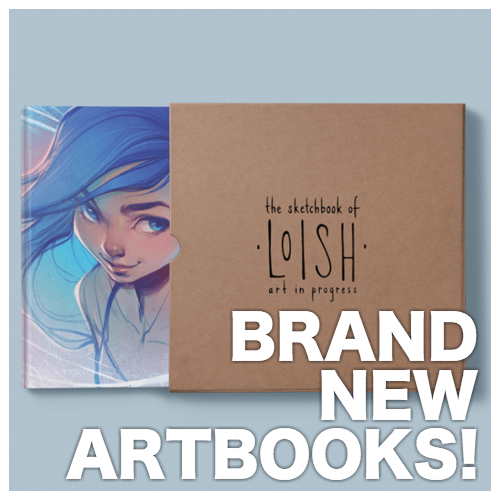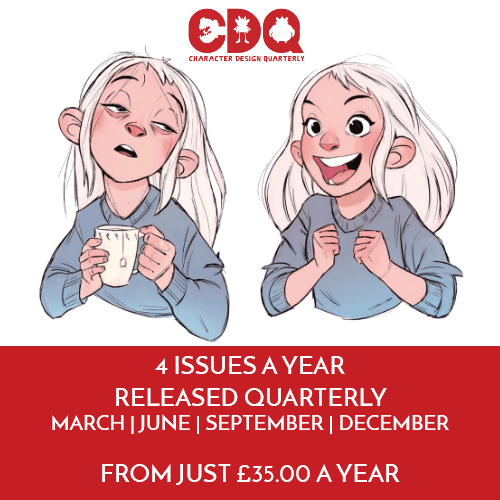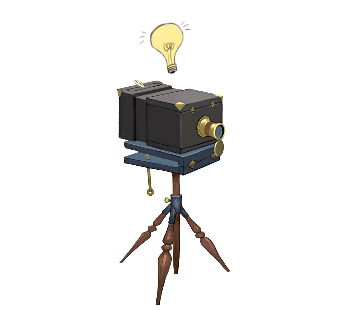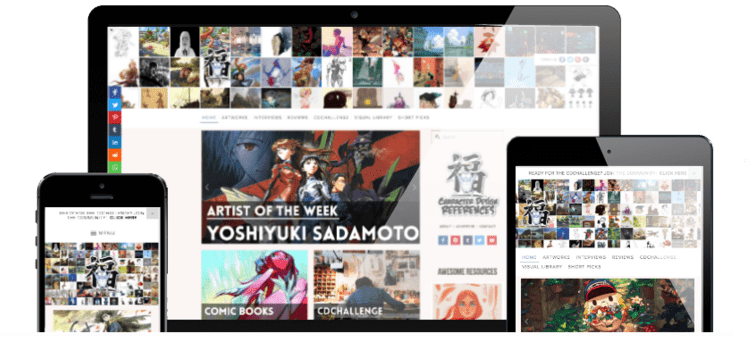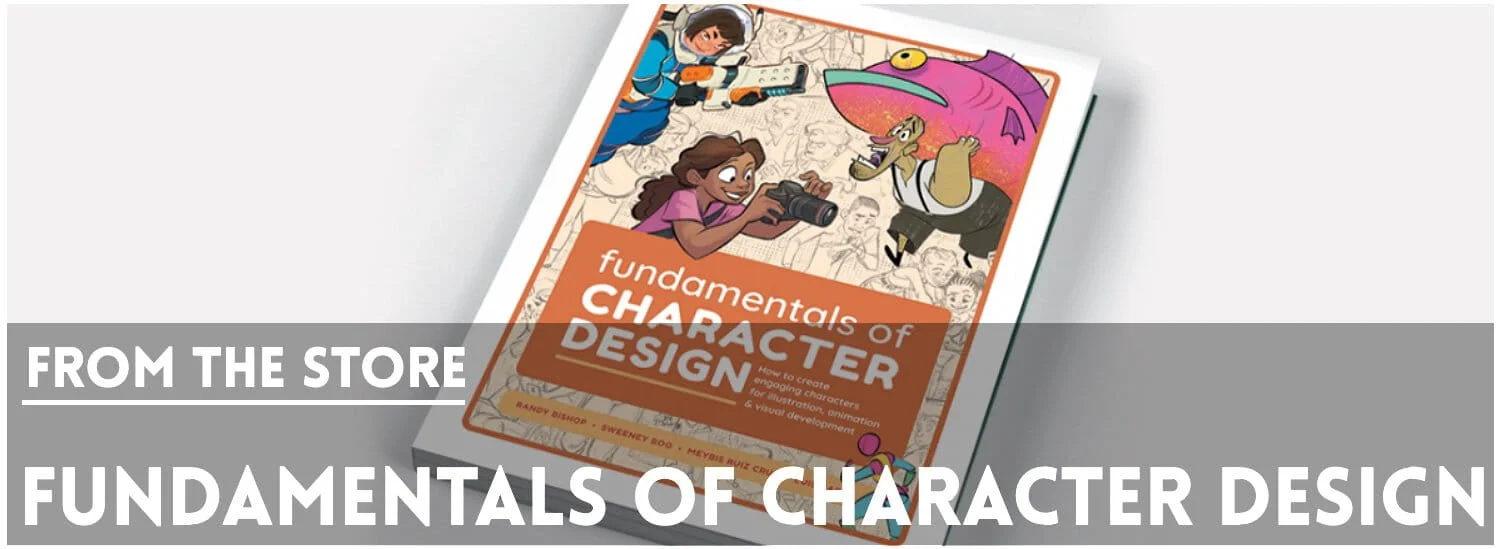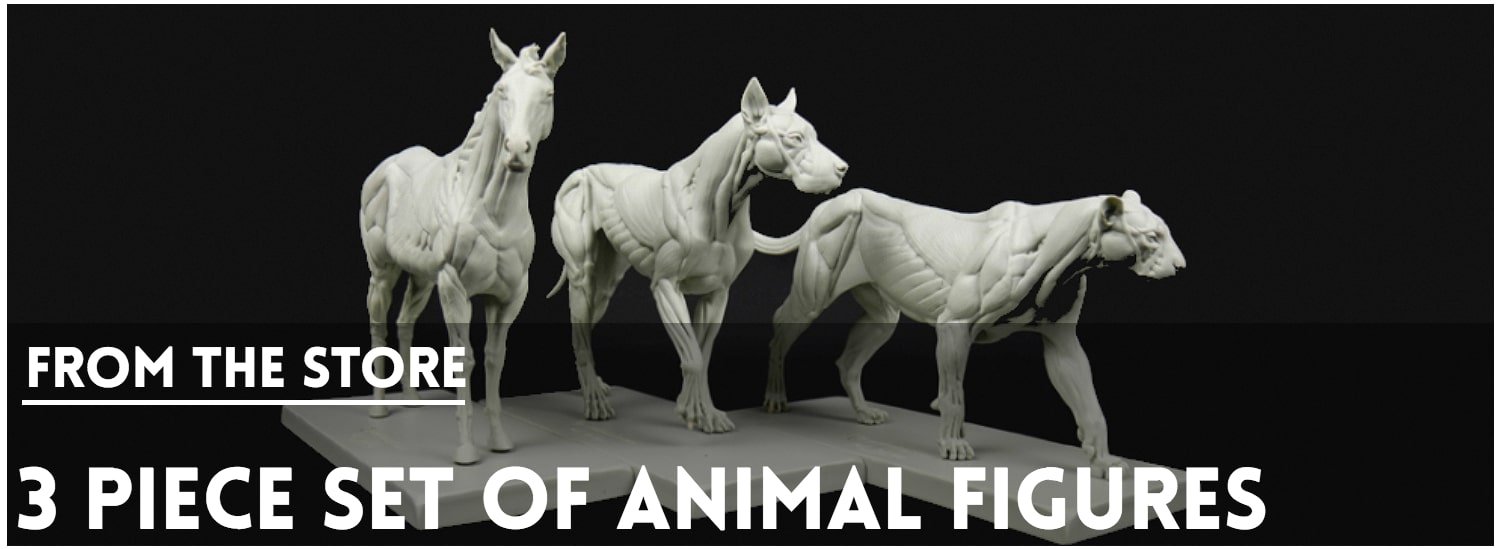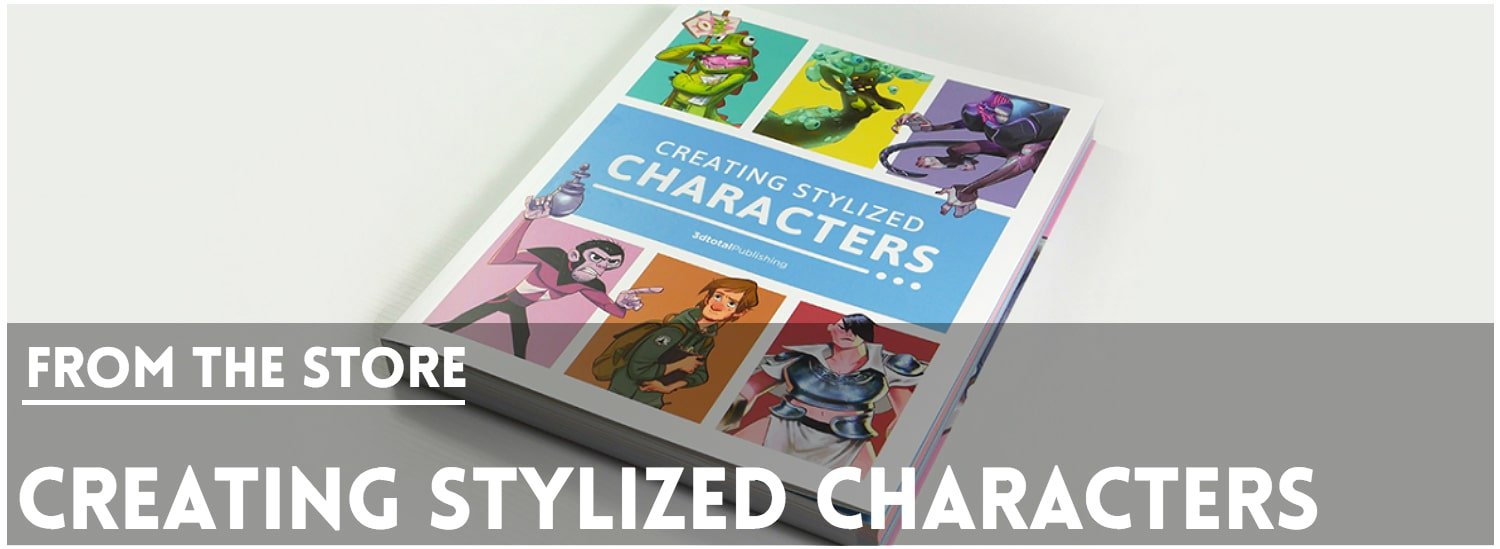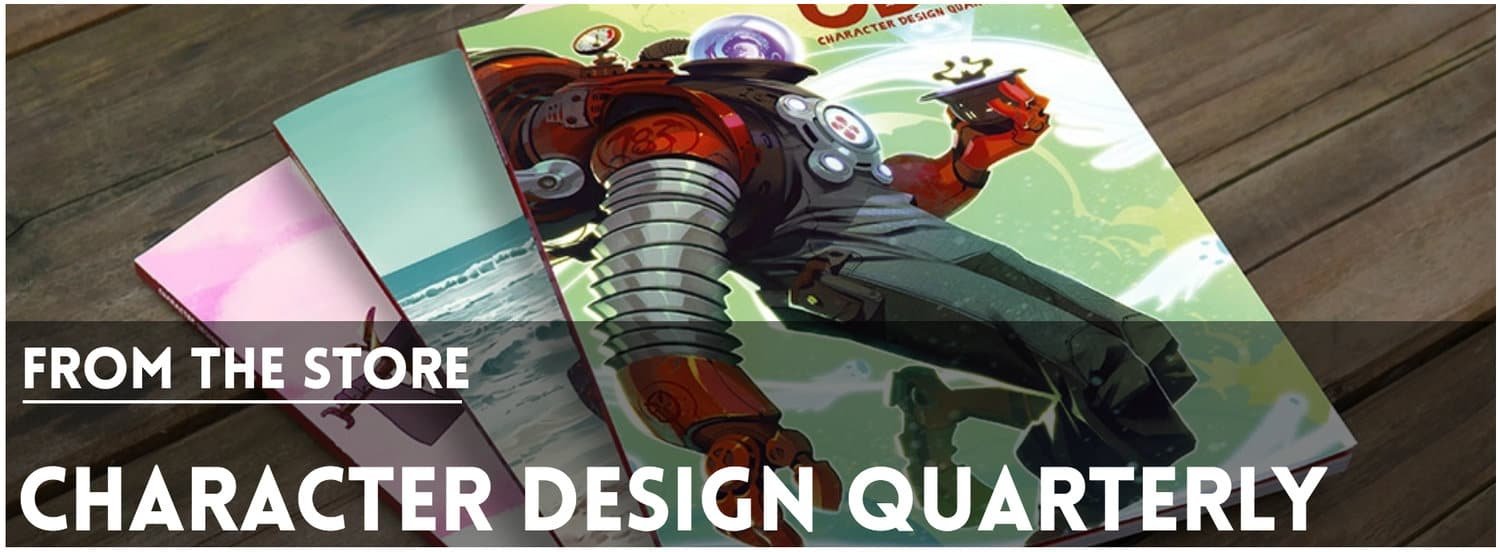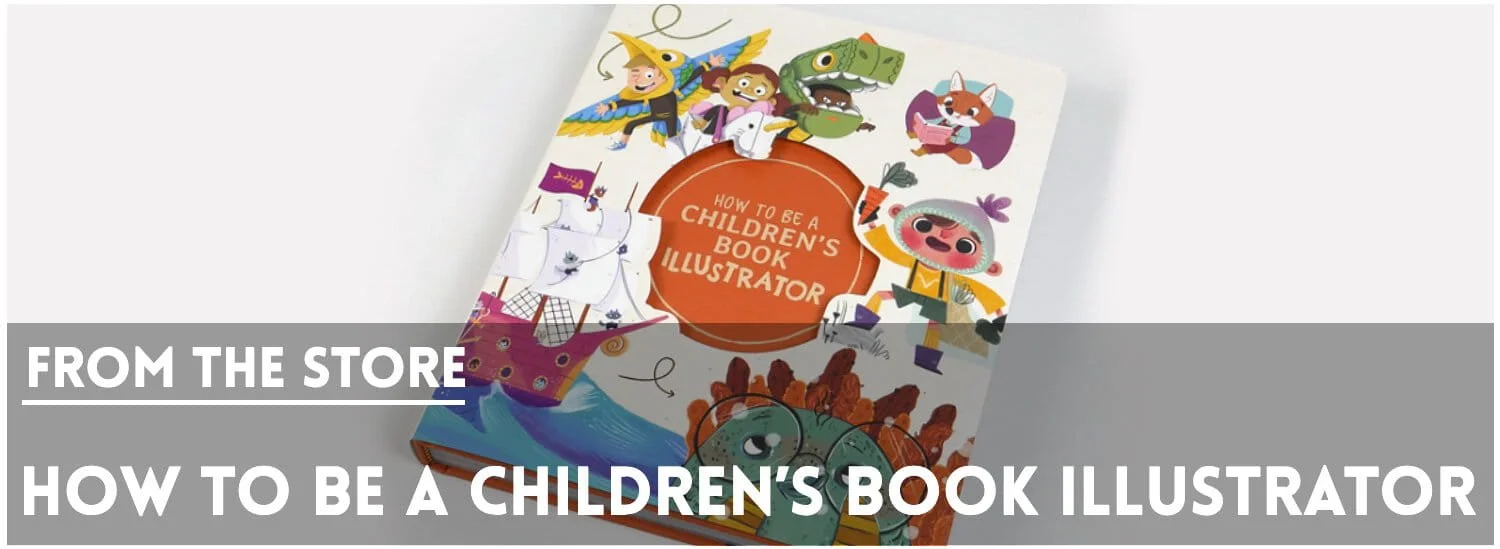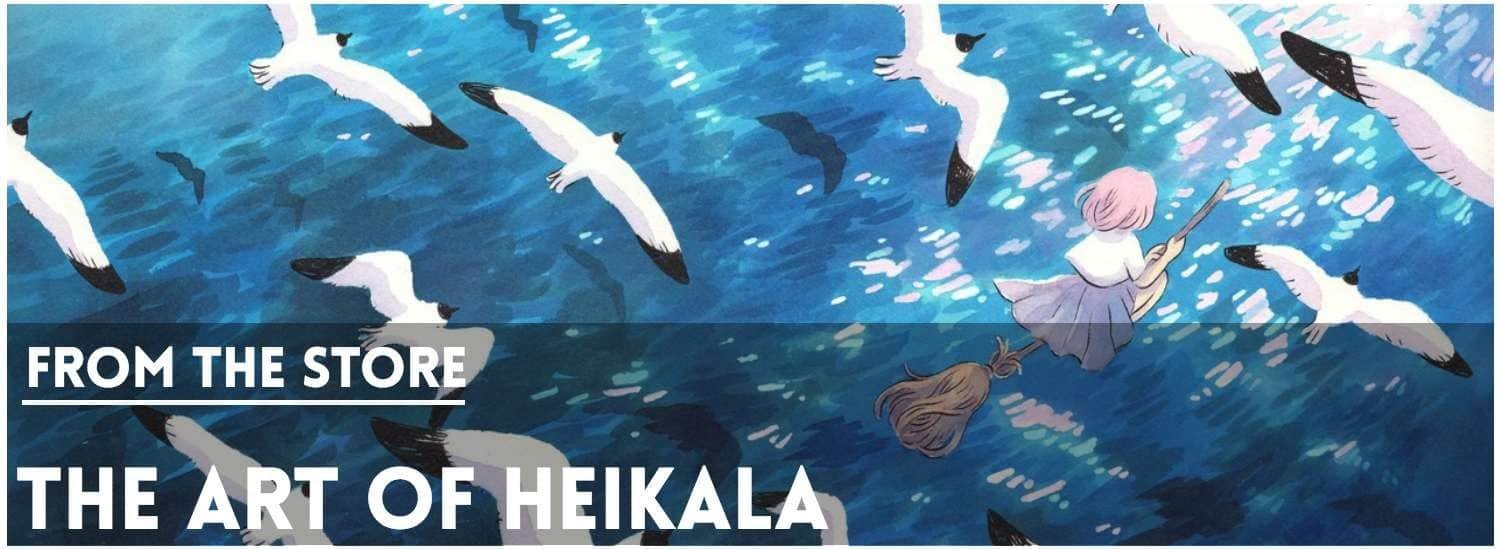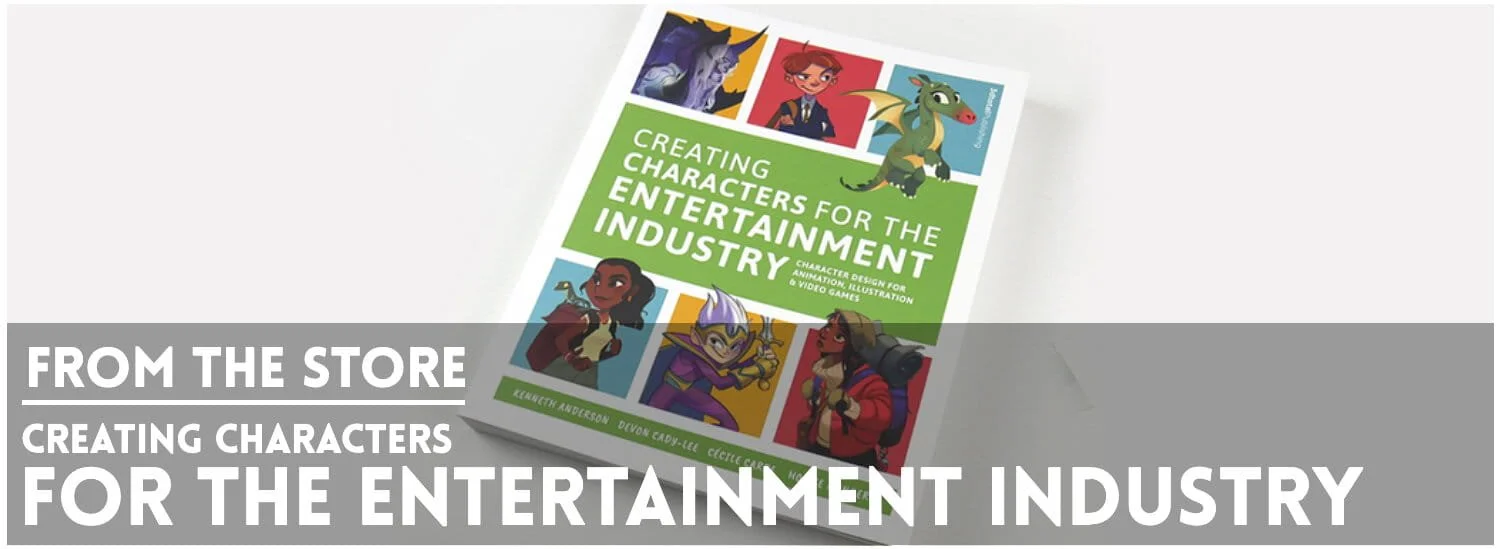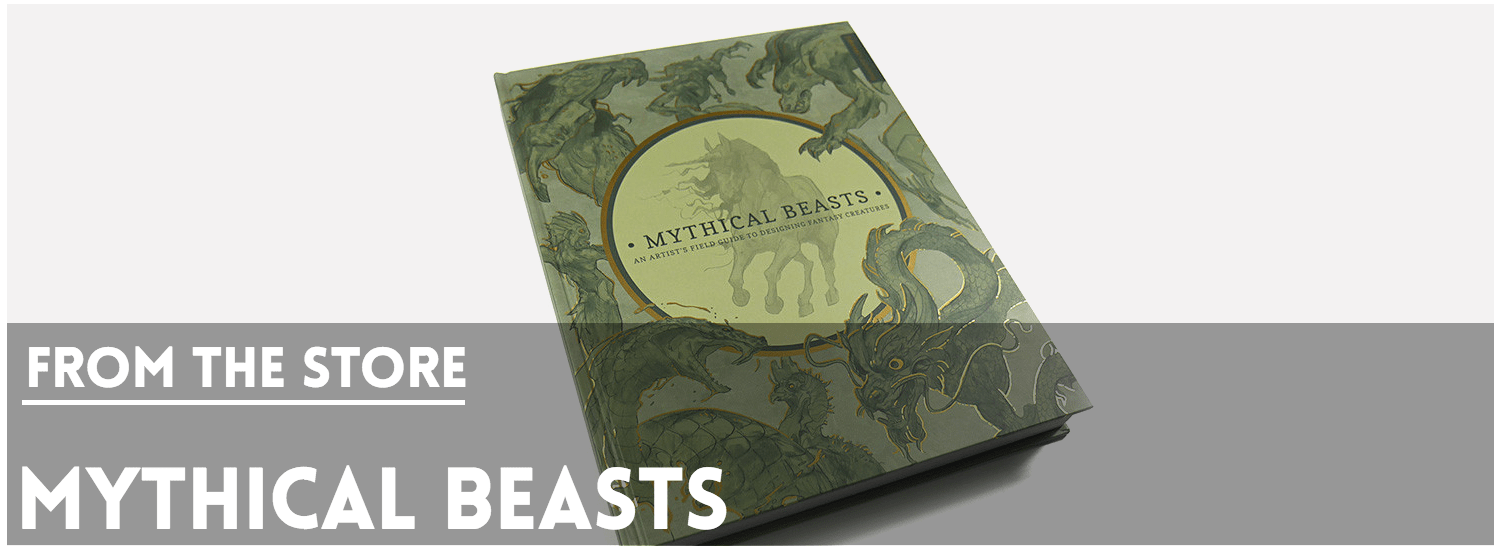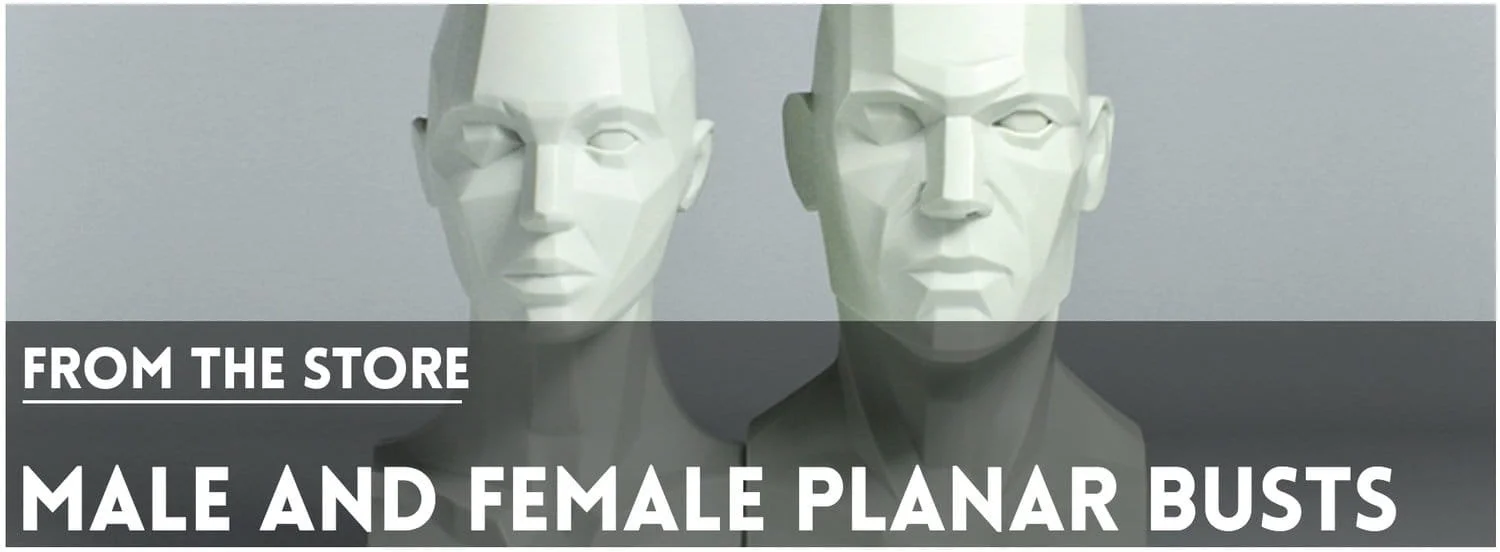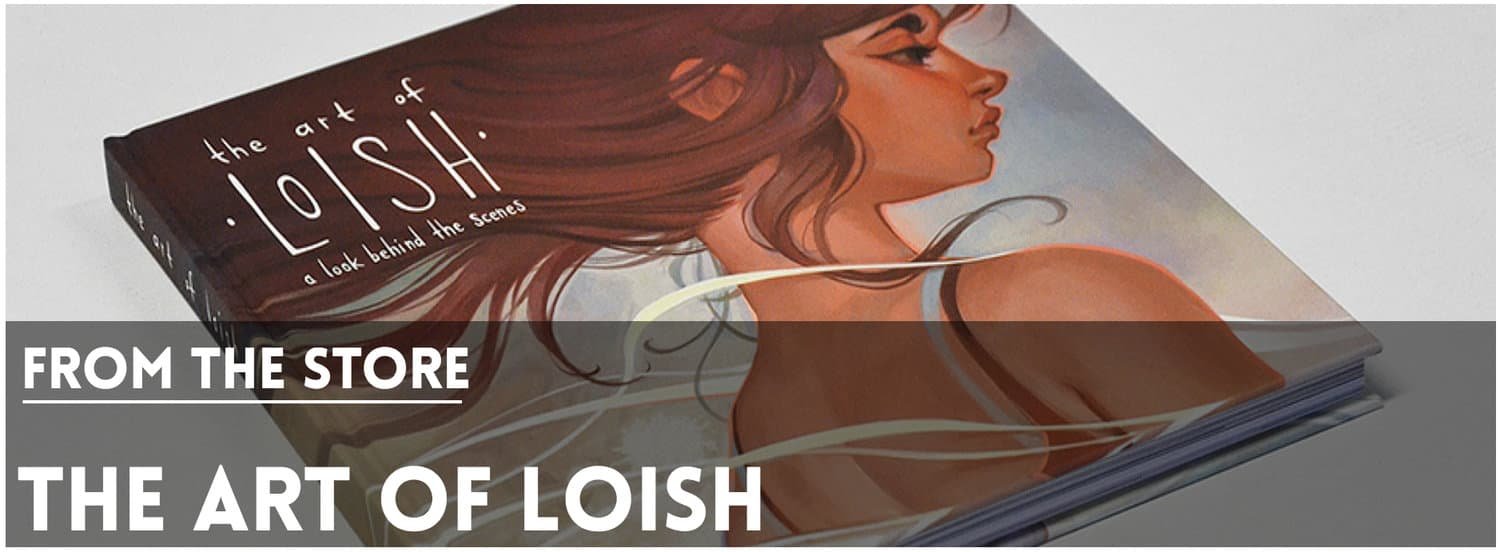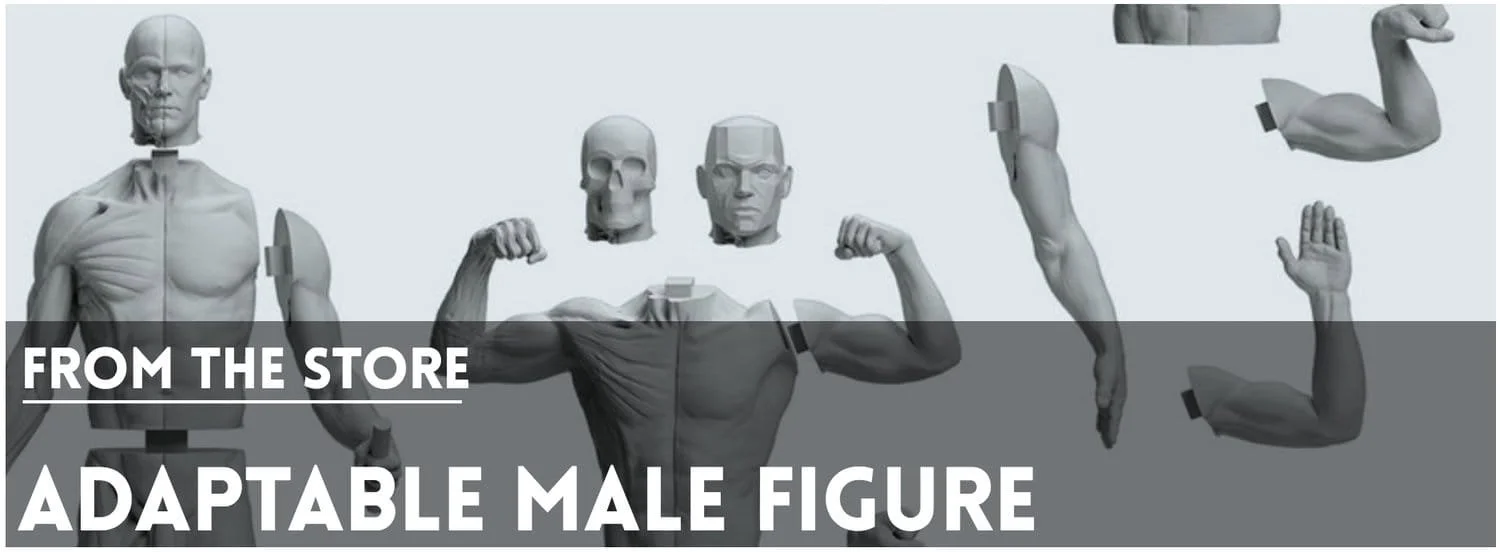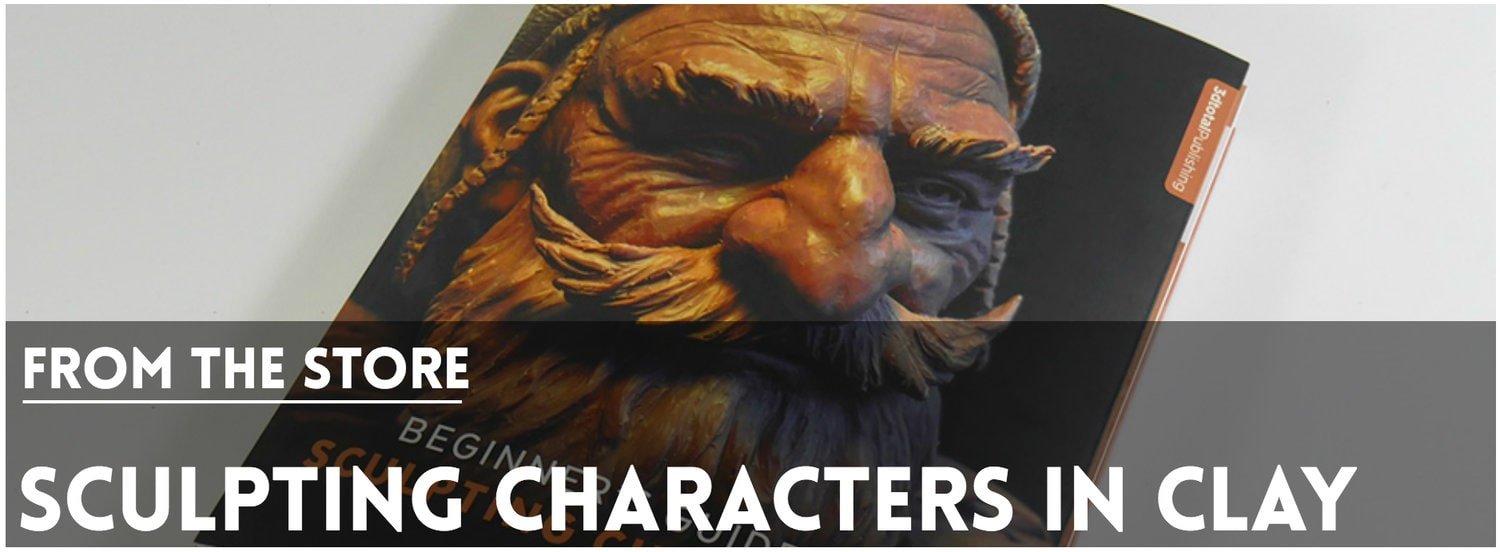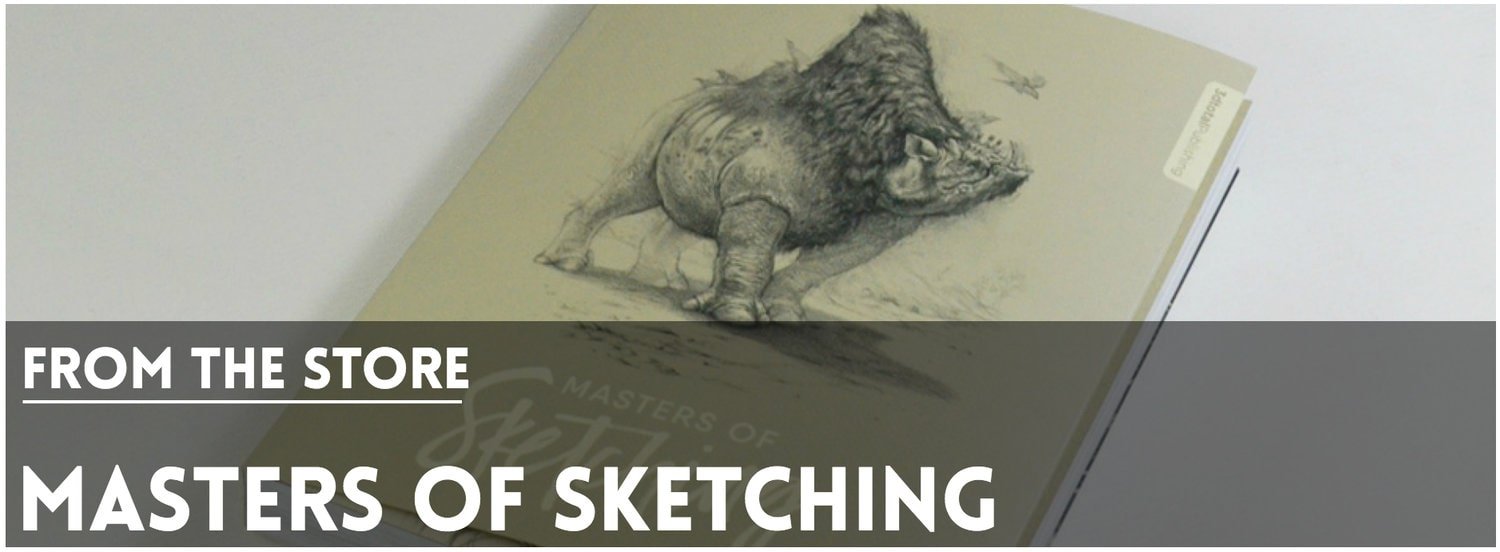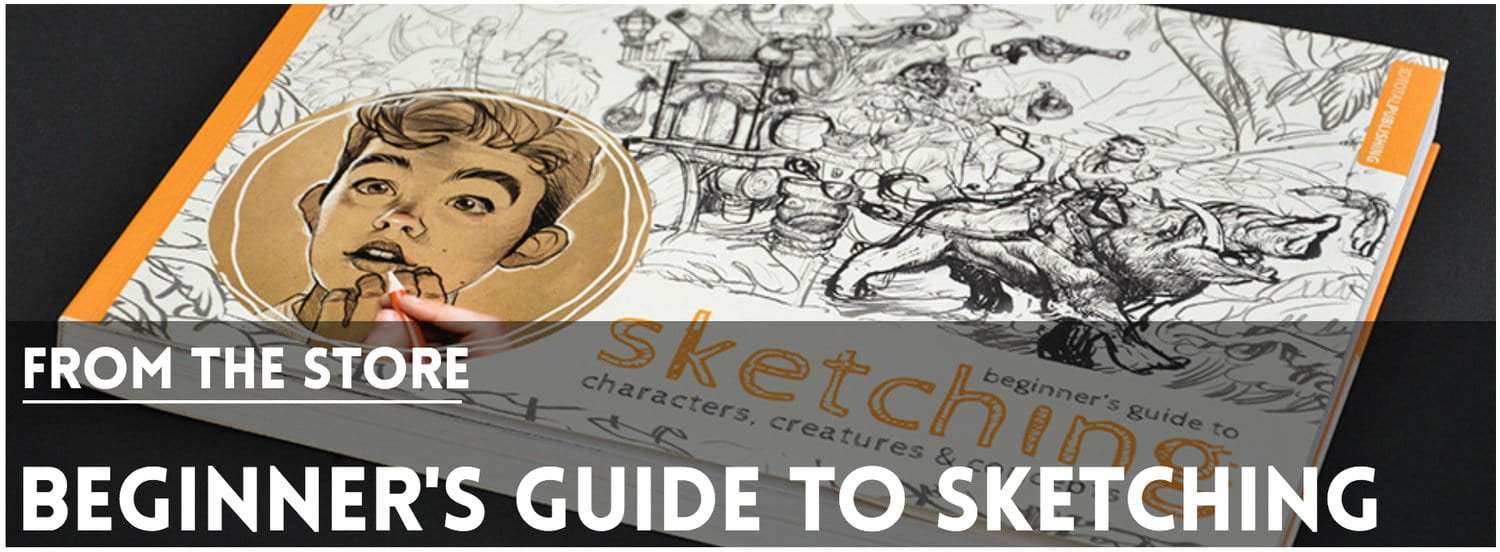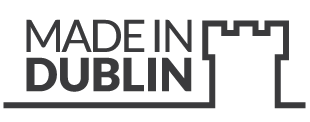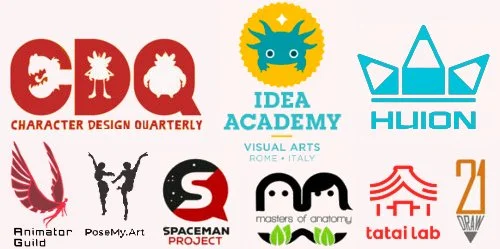Johannes Helgeson
/Where did you grow up and when did you decide to become an artist?
I was born in 1986, and grew up in Gothenburg, Sweden's second largest city, known for metal-music, seafood, and people with a good sense of humor. I decided to become an artist at the age of 19 upon graduating from high-school.
Did you go to an art school or are you self taught? How did you develop your skills?
I went to the University of Skovde from 2005-2008 and studied “Computer-game Development - Graphics”. I graduated with a bachelor in Digital Art and Media in 2008. My education was centered on learning 3D, so I spent most of my time at school struggling with Maya. We did get life-drawing classes, and I spent my spare time learning to draw and paint. In 2006 I joined the Conceptart.org community (which died in 2009-2010), where I was introduced to some of the best artist in the world, and the mind-set and mentality which made me what I am today. At school, 1 year senior to me, was a guy called Bjorn Hurri, whose discipline and efforts at mastery had a profound impact on me. He showed me how talent counts for little, and hard work and diligence is key. He also introduced me to Glenn Vilppu's Drawing Manual, a book which taught me the fundamentals of drawing. Later on I found a few opportunities to take workshops with Glenn, which taught me a lot. Another guy on the conceptart forums, Patri Balanovsky, aka. Chuckmate, published a series of tutorials which I followed, which made digital painting approachable. There are plenty more names, I owe so very much to so very many.
I would paint and draw as much as possible, trying to put in anywhere between 8-12 hours of drawing/painting per day. I loved the Drawn to Life books by Walt Stanchfield, they taught me a lot about storytelling and gesture. Over the past couple of years I've done a lot of studies, looking at photos and trying to learn from them. I also took an online painting class with Dice Tsutsumi and Robert Kondo which had a massive impact on the way I paint and see things.
I've also always tried to surround myself with likeminded people, and artists better than myself, who I could ask questions and who were motivated to get better at art. I think that's pretty important.
Have you always been supported in your artistic path or has it been challenging to let your family and friends understand your choice?
Yes I have, my parents were always very encouraging, my mother enjoys painting, and my father plays music and sings as a hobby. In school got very good grades so I don't think anyone was worried for my future. Playing video-games was fairly main-stream growing up, so most friends and people my age can relate to that medium somehow, I never felt it was stigmatized or frowned upon. It's been tough for my family, and still is, that I moved around so much, and that I live far away, I've been very egotistical and uncompromising in my pursuit of adventure and skill and a job I enjoy. People don't usually understand the need for practice and discipline, and why you can't go partying because you need to stay home and draw. Very few can relate to the sheer amount of time it takes to get good at something.
What was the strongest influence you had when you were growing up ( artists, movies, cartoons, comics etc.. ) ?
I watched a lot of saturday morning cartoons such as Animated Batman, Swatkats, Ducktales, Transformers, Turtles, Power Rangers and Talespin. I had access to cable-tv at my dad's place :)! I played a lot with action-figures and lego as well. I made up tons of stories and scenarios and would play them all out.
I started playing video-games at the age of six, and maintained that passion throughout my life. Games such as Super Mario 64, Star Fox 64, Zelda: Ocarina of Time, The Curse of Monkey Island, Baldur's Gate 2, Starcraft, Streets of Rage 2, Fallout 2 and Deus Ex were all big part of my growing up. At 14 I started playing pen and paper RPG's such as Dungeons & Dragons, Vampire the Masquerade and Swedish ones such as Eon, Drakar och Demoner and Mutant Chronicles. I would always draw my player character, and I thoroughly enjoyed coming up with the backstories and characteristics.
There wasn't a strong comics-culture in Sweden, I mostly just read Donald Duck. I recall loving Todd Lockwood when I was younger, and all art in the Roleplaying-game books. I was a very geeky kid ;)
I'm also a huge fan of movies! Terminator 2, Robocop, Jurassic Park, Indiana Jones, Star Wars, Secret of Nimh and Blade Runner all had an impact on me. Nowadays I love the Cohen Brothers, John Carpenter, Paul Verhoeven, Clint Eastwood and Paul Thomas Anderson.
Did you have a favourite subject to draw when you were a child and do you still have one today? If you do, what makes it so special?
I was always all about the characters. Drawing my roleplaying-game-characters or characters for some story I had felt the most meaningful and fun! When I design a character, I ask myself if I would want to be this character. Even if I design someone evil, I ask myself if in that context I would like to be that character. I try to fulfil fantasies; being super powerful, or maybe confident and sexy, or brave and capable, or being a cool cowboy etc. I always try to give my characters purpose and agency, and I make a conscious choice to avoid objectification. I try to imbue my character-designs with truth, I try to call on my own experiences and emotions, or the memories of people I've met. Then you have to think about all the stuff such as anatomy, shape-design, viewing angle and story and so on, so designing characters is multi-faceted and deep.
From the initial client idea to the final work: what goes through your mind when you are designing and what is the method you use when starting a project? Could you describe it?
I like when Neil Gaiman says that “You have to start somewhere”. That's so true, and I feel every thing you paint or draw is different. Sometimes it's a story, a theme, or a specific piece of a clothing you saw or a book you read. I think it's important to feel some sort of passion for your subject, and have something you want to say about it. That said, as a professional concept-artist you have to be reliable and consistent, so I've developed a bit of a pragmatic process which always gets the job done. On my spare time I can spend a lot of time exploring and playing around, but professionally usually you have a shorter deadline.
The first step is to make sure you really understand the brief, read it over and over again. Try to understand what it is your client really wants. Treat them the way they want to be treated. Then I tend to spend time finding reference, and writing down ideas on paper. For a character, I'll start a new board on pinterest, adding all kinds of imagery I think might be useful.
Next, I'd like to make a few rough sketches which I'll present to the client. Usually I go for 4 variants, I'm not a fan of producing tons of concepts, I find if you do that it's a symptom of having a too vague an idea, or an indecisive and insecure client. If I can't get a good rough basic design down in a few attempts, I probably need to spend more time thinking and finding references. Personally I like designing with a mish-mash of colored shapes, lines and shadowshapes. I just want to get the main idea of a design across as quickly as possible. I also want to make my design functionable and feasible.
After that, I'll likely produce a fairly tight line-drawing which I can check with the client. If he/she likes it, we can move on to color and painting. I like to involve my client in the creative process, and I make myself very open to feedback and changes. I think it's very important to take notes when you get feedback, a lot of artists gloss over that, and forget what they've been told to fix.
I see myself like a Genie/Minesweeper in a professional context. The Genie in that you have to fulfill the wishes of your client, no matter what you think of them. The Minesweeper in the sense that it's your job to explore solutions and find what will not work so that less time is wasted in production. Sometimes you'll know that a solution is a bad idea, but people will still want to see what it looks like, so you'll just have to walk onto that mine to re-assure them that it exists and should be avoided.
What is your process in colouring your art and what type of tools and media do you use?
For coloring I use photoshop. Usually I try to make myself a clean lineart first. Then, I will create a “selection-layer” which I can use throughout my painting-process. Next, I block in the local colors without the influence of any lightsource. I do add a bit of painterly color-variation though, and various temperature-shifts where appropriate. Following that I start blocking in my various light-sources and corresponding shadows using adjustment-layers. I usually try to find a reference for the light-setup I'm using, most often a screengrab from an appropriate movie. Once I've blocked them in, I start painting the focal-points. I use a ton of custom brushes, and I'm always trying out new ones and experimenting with what looks good. For every piece, I've vowed to try at least one new thing. I made a free video-tutorial last year where I meticulously explain my process. You can watch it HERE
What part of the creation process is the most fun and easy and what part is the hardest?
It's all hard, there's nothing easy about character-design. I like what Jason Deamer wrote a while back: "It's never easy. It shouldn't be easy. If it's coming easy then you're going down a path you've been down before. You’re resorting to design solutions that you've used or you've seen used before. "Sergio Pablos also said something profound: “I always say that my work is 90% frustration, 10% satisfaction. There´s always that brief moment when you look at the finished product, and you allow yourself to be proud after all it took to get there. Then you get into the next job, and the frustration comes right back.”
It gets easier once you nail down a design or composition, and you can fall back on your technique. But coming up with a design is a scary and difficult and a somewhat unpredictable process.
What is a typical day for you, and who are the people you work/collaborate with?
I get up at 07.30, have breakfast and make myself ready for work. I show up at the office at 8.30 and work till 17.15-17.30. I jump around on various projects, so my co-workers switch with some frequency. We are three dedicated concept-artist in the studio which has more than 100 employees. After work I go to the gym, five days a week, work out for 45 minutes, shower, and then head home to make dinner. Then I can start painting/drawing around 19.00-19.30, and I can work on personal artwork for 3-4 hours in the evening, unless I want to spend time with friends or my girlfriend. I have a fairly strict and rigid routine, which some might call boring, but which I feel is meaningful and makes me feel good.
What are some of the things you have learned from other artists who you have worked with or whose work you have seen?
A great piece of advice was to remember to have fun. It's easy to lose that, so it's something I need to remind myself of from time to time. I've also learned that use of reference is a key-skill, and that a lot of good artists really take their time with concepts, and are patient. Don't stress to reach a solution before it's necessary, and take your time with things. I've also learned to find a balance between passion and detachment, at the end of the day, you don't want to fall in love with a concept, because it might be rejected or completely changed. It's easy to act unprofessional when that happens. At the same time you need to feel passion for your ideas, or it will show in the end result. It's a tricky balance, which you don't need to concern yourself with when you do personal art.
Is there something that you have designed that you are most proud of?
Not yet, I consider myself a journeyman of my craft, and in the grand scheme of things I'm just getting started. I take great pride in having satisfied my clients and having made art they enjoy and are willing to pay for. I tend to feel pride when I tackle a challenge head on, or go outside my comfort-zone. For that reason, I was quite proud of my work on Skylanders: Superchargers, as it was my first experience with vehicle-design.
What projects have you worked on in the past and what are you working on at the moment (if you can tell us)?
The first game I worked on was called Milmo, a very early free to play 3D MMO in the web-browser. Then I worked at Gameloft/Redsteam in Singapore on Heroes of Order and Chaos, My Little Pony Village, Zombiewood and a few other cancelled/unannounced titles. After that I did freelance for a few companies such as Trendy (Dungeon Defenders 2) and Kabam (Spirit Lords). After that I worked in Germany for GoodGame Studios on a few projects. After that I moved to Quebec City to work on Skylanders for Activision/Beenox, which was my first AAA experience. Since October last year I've been working for Hibernum Creations in Montreal on a bunch of different projects. The one I'm most invested in has the working title “ZombieCruise”, which is a super cool rouge-like, turn-based, strategy game.
What is your longterm career goal and what would your dream project be?
The longer I've worked in the computer-game industry, the more I've come to realize that I get the biggest satisfaction out of personal projects. I like a job that doesn't force me to do overtime, and which leaves me enough energy to do painting after work.
I would love to be involved with a Tv-Show or Feature-Film, stylized, but with the feel of a James Cameron- or John Carpenter-movie at some point. I intend to make my own comic, and an artbook. I would also love to do pinup-illustrations, and design action-figures and maquettes. Eventually, I'd like to work on some project which might have the same cultural influence of Animated Batman, or Team Fortress 2.
Working for a company or freelancing: what suits you best? And why?
I have tried both, and they have merits and drawbacks. As a freelancer, if you’re reasonably well connected or known, you have to opportunity to choose which projects you work on more freely. In a studio, there’s usually only one or a few different titles, and you will have to adapt to fit one of those. As a freelancer, my experience is that I was approached because of my style, or asked to help define it, whereas in a company, I’ve had to conform to someone else’s way of doing things. In a sense, in a studio, you need to be more flexible in terms of style and subject matter. However, as a freelancer, you’re not there for the whole cycle of a project, and it’s difficult to feel as invested or have that sense of ownership as you would in a studio.
Another major drawback, I found, as a freelancer, was the social isolation. Unless you’re a social butterfly, you might feel lonely due to your lifestyle, and the fact that you spend so much time at home drawing and painting. In a studio, you always have the buzz and life which comes with all the people. In addition, as a freelancer, I find it’s crucial to develop discipline and routine, work in a studio is less demanding in that sense.
Finally, as a freelancer you can earn WAY more money, like double or triple what you would in a studio, however, that comes with the lack of certainty and dependability of a steady paycheck. Also, as a freelancer you will have to learn how to deal with a lot of administrative tasks, accounting, how to write invoices and so on, which can be quite draining. Also in-house comes with the huge benefit of dental-insurance and health-insurance etc.
Personally, I tend to shift from time to time, sometimes craving the challenge of freelance, and sometimes the security, sense of investment, and social-situation of a studio. Currently, I’m working in-house and I couldn’t be happier.
What advice would you give to an artist who is dealing with an art-block? How do you boost your imagination and keep yourself creative?
An art block, in my experience, is usually a symptom of a bad situation in life in general, or the feeling that you need to create perfect pieces. For me, the most important aspect to staying productive and creative is to engage in physical activity every day, it’s been magic. Every day, after work, I go to the gym for 45 minutes, and when I get back home, I have a second wind of energy. Without it, I just feel drained and watch series or silly stuff on youtube. This is extremely important for my motivation.
Also, you need to accept that you’re going to make a whole bunch of ugly and bad drawings/paintings. Don’t try to make the perfect piece, if you feel the pressure, just draw something silly. You don’t need to show anyone. Letting go of that desire to make the perfect piece is incredibly liberating, I often think of what I do as just “a silly thing”.
I had to cut games from my life. I grew up loving games, I’ve played and finished hundreds of them, and I was quite good at Team Fortress 2, Counter-strike, Battlefield2142, World of Tanks etc. But I realized they were consuming the time I needed for art, and I’ve never been good at balancing these things. So yeah, asking yourself what that “one thing” taking away from your art is, and then cutting that out of your life, can make a huge difference.
Finally, if you lack ideas, you can always make some photostudies or still-life paintings. Looking on the web for photos you like is fun, and since you’re just making a study, you can remove the pressure of feeling you need to make a portfolio-piece. I feel that any painting which is heavily based on someone else’s photo, is not good portfolio-material.
Concept art, animation, illustration, comics, there are lots of choices. When you’re young, sometimes you know only one thing: you love to draw. What should a young artist take into consideration to make the right decision when choosing an artistic path?
I feel it’s important to do what you love and avoid trends. Don’t force yourself to do photobashing just because that’s what everyone else is doing. If you like realism, do that, if you like cartoons, do that. If you get good enough at something, people will want to pay you for it. Comics/animation/games etc, are not entirely mutually exclusive. Building a skillset for one, is probably going to be useful if you decide to try something else. I dabbled in 3D when I was younger, and that helped me in concept art for sure! I also think it’s important to challenge yourself and venture outside your comfort-zone. I specialize in characters, but so far in my career I’ve had to design environments, props, vehicles, and even do storyboards, colorkeys and 3D. Being an artist is a lifestyle one commits to for a lifetime, if it’s not fun it ain’t worth it.
Many art teachers and schools suggest to their students that a commercial artist should always work in one consistent style if they wish to have a healthy career. In your own experience, do you believe this to be true?
Many art-teachers don’t know what they’re talking about, and have that position because they aren’t good enough to work in their respective field. Always be sceptical about advice given from perceived authorities. If you’re good, one style can be enough, although in my experience, unless you’re one of the best in the world and will be the one defining the style of a game, you will need to have some stylistic flexibility if you want to work in a studio. I have a reasonably pronounced personal style, which has led to many freelance-offers, but which has been bad in getting a studio-job. I pride myself on being somewhat stylistically flexible, but the stuff I show online is fairly consistent in terms of style. My professional work is, for the most part, under NDA’s or part of cancelled projects, and can thus never be shown. I don’t venture outside the realm of stylization and cartoony though. Nowadays, with platforms such as Patreon and Gumroad, it seems to me there’s more room for diversity and specialization. If you have a strong style, you can find your audience, and capitalize on them if you’re so inclined. For me, style wasn’t a choice, it’s been a consequence of my personal taste and the media I’ve consumed. Again, remember to have fun and do what you love, that will show through.
If you had to recommend only one art book (a comic book, graphic novel, children book, ''how to'' book) to a fellow artist, what would it be and why?
I would recommend Glenn Vilppu’s “Drawing Manual”, it’s what I used to learn how to draw. It covers most of the fundamentals in a very clear manner. I would further recommend Walt Stanchfield’s “Drawn to Life” and James Gurney’s “Color & Light”.
What’s your point of view about the industry today: what are the expectation for someone who wants to make a living with an artistic career?
I think it’s a more competitive climate now than it’s ever been. With easy access to good quality and cheap education, the level in general is higher than when I started a mere 8 years ago. I feel a lot of artists are good at technique and rendering, but lack in interesting and original ideas. Much of what I see is heavily derivative and formulaic. I feel a sad state of the industry is the focus on re-imaginings, re-boots, re-masters, and sequels, at least in AAA-games development. I feel original ideas have more potential, and in general higher artistic value. It’s quite unsatisfying, and sometimes un-ethical, as a concept artists to be ordered to copy or heavily reference another game. In my opinion, a good concept-artist ought to seek original and unfamiliar solutions.
A trend I dislike is people making photostudies, and then omitting to credit the source. When making a photostudy, no matter how stylized you make it, I feel at least 75% of the work has already been done, in terms of lighting, subject matter, composition and colors and so on. I don’t like piggyback-riding on someone else’s efforts without stating it transparently.
From what I can tell, concept-artists, illustrators, visual-development-artists etc. are not in demand. The market is quite over-saturated with skill and talent, and there are not enough jobs to answer to the amount of applicants. Now, more than ever, you need to be very skilled at what you do to ensure a job, or very well connected. You need to be persistent, patient, and stubborn to succeed imo.
Who are the artists who inspire you the most today and what are some of your favourite designs out there?
Bruce Timm is one of my greatest influences. I would also name Ben Caldwell, Masamune Shirow, Niklas Jansson, Claire Wendling, Matt Rhodes, Cory Loftis, Moby Francke and Wes Burt. I’m furthermore inspired by Disney and Pixar-films, such as Sleeping Beauty, Treasure Planet and Up. Team Fortress 2 is incredibly well-designed, Overwatch looks astonishing, and the game Journey is breathtaking.
We have a soft spot for hand drawn animation, what is your opinion about the future of this art form?
I’m not an animator, nor have I worked in that industry, so take my opinion with a grain of salt. I feel, if you’re doing something really well, there will always be a market and demand for it. I think what Sergio Pablos and his studio is doing with “Claus” is exciting and revolutionary. I am consistently blown away by the shorts from Gobelins, and Headless Studio. At the same time, it seems to me as if a lot of old-school animators have a hard time sustaining a career full time doing traditional animation, I doubt it will ever have the importance it once had, considering the impact of 3D.
Social networks, crowd funding websites, print on demand online service, you name it. New media on the internet are connecting the artists directly with their fans like never before. In your opinion, how is this affecting the industry and what are the pros and cons?
I think it’s way easier now to step out of obscurity and find a large fan-base, than it was only five years ago. I feel like a lot of current networks were almost tailored for us visual artists. More views and likes can open doors and allow you to connect with people who can give you jobs or other opportunities which can further your career. And the constant support and adoration of fans can be motivating and gratifying, especially if you love to entertain people. At the same time, the constant gratification and feedback can be addictive and distracting.
With easily accessible tutorials and education comes a lot of bad information as well. Art-students are often eager and gullible, lack a sense of critical thinking, and ascribe value and artistic authority where it’s not warranted. A lot of people want to be perceived as teachers, and will eagerly share advice and guidelines, even though they don’t have the skill or practical experience to back it up. Just because someone is popular it doesn’t mean they’re good. I have received tons of bullshit advice over the years, and I feel it’s important to develop your sense of critical thinking.
I think it’s dangerous when the amounts of likes starts affecting your decisions on what to draw, and can have a detrimental effect on your artistic growth. You might find a subject matter, shading technique or particular light-source which a lot of people like, and then all of a sudden that thing is the only thing you make, and you remain stagnant because you never venture outside that comfort-zone. I implore people to not be afraid to make ugly pictures and fail often. Sadly, your effort at improvement won’t give you a lot of likes, in the short-term.
A huge pro is that you’re now able to, easier than ever before, reach out to artists you like and respect, and ask for their feedback and advice. I wouldn’t be anywhere without the counsel, advice, and encouragement of more senior/superior artists.
With such a saturated climate, it can be hard to be seen. I feel it’s important to stress that building an online presence takes time and effort, and is quite separated from being a good artist. Personally, I’ve been active online for about a decade, and most of my bad art can be seen with a little bit of googling.
Finally, Where can we see your art online and get in touch with you? How can we buy your creations and support your work?
You can follow my work on Tumblr ( helgesonart.tumblr.com ), Artstation ( artstation.com/artist/helgesonart ) and Twitter ( @Helgesonart ) Knowing that people enjoy my artwork is support enough! :)
Thank you Johannes :)
